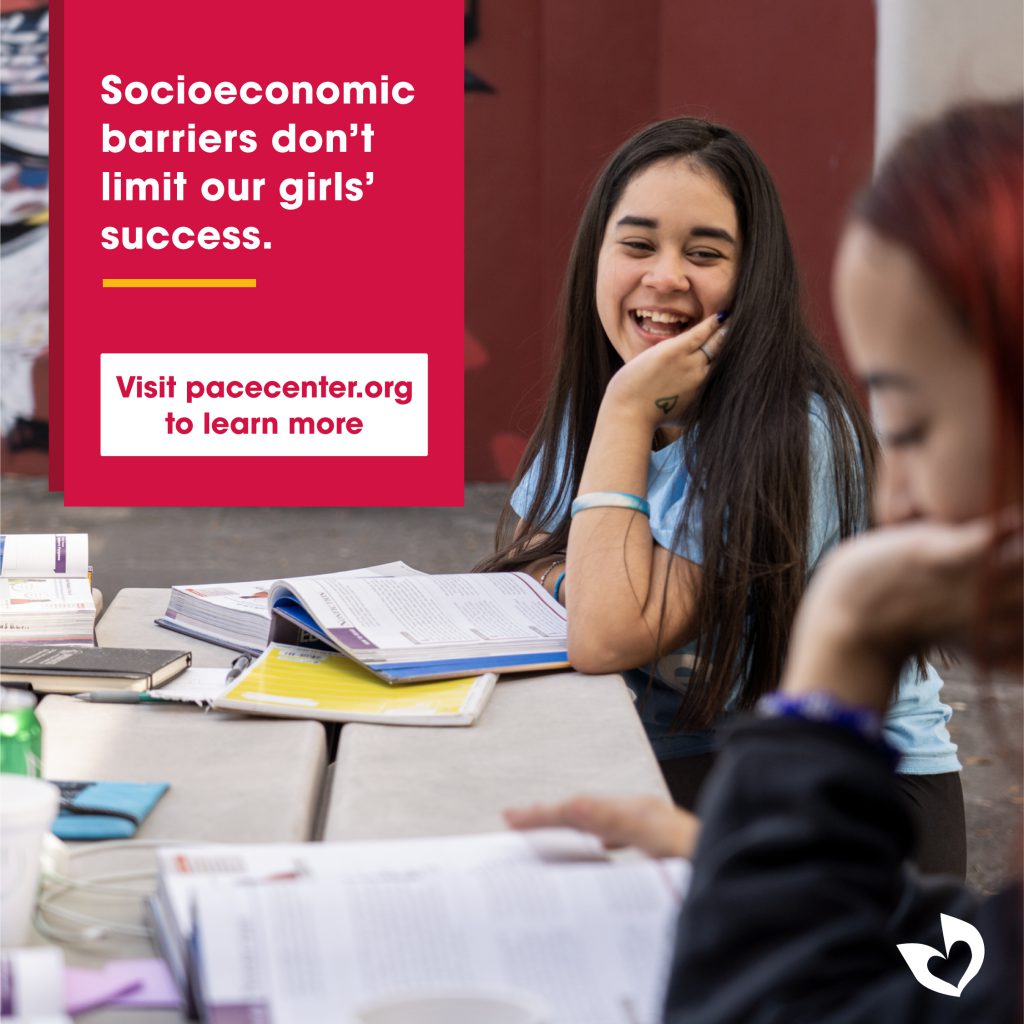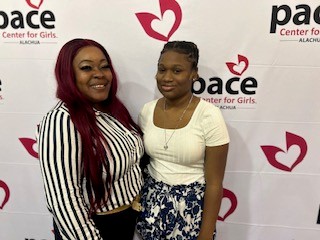January is Poverty in America Awareness Month — a time to recognize the past and present effects of poverty in our communities. The cost-of-living crisis facing the world is putting women’s livelihoods, health and wellbeing at risk.
Pace Center for Girls often operates in the intersection between poverty, mental health, and education, with 90% of Pace girls living below the poverty line. For Lisa Spears, Pace Reach Manager in South Carolina, this statistic represents an opportunity to better serve girls, their families and communities.

That’s where Pace’s Reach program comes in. Pace Reach is in more than 17 communities across Florida, Georgia, and South Carolina, and provides free mental health services to over 1,000 girls every year. The girls and young women we support receive academic instruction and work closely with counselors trained in trauma-based therapy and suicide screening. They also get life coaching to learn basic life skills, such as personal hygiene, shopping for groceries and how to land their first job.
For girls growing up under the poverty line, having access to counseling and therapy isn’t a given. And with the other challenges associated with poverty — like working extended hours, caretaking duties, and lacking resources such as laptops or reliable internet access — middle and high school girls can slip through the cracks. That’s why Pace Reach therapists are so critical: “Sometimes you have to help elevate a girl’s voice to get her at the front of the line,” Lisa says.
One Pace girl shared: “My family and I had been facing some challenges — a lot of it came from financial struggles. The tipping point was the eviction, which hit me really hard. When we were forced out, the people took everything — my clothes, my laptop, all the things I needed for school, and I felt guilty. I prided myself on being an overachieving 16-year-old, and I believed I could have done something to prevent this situation. A mentor of mine recommended that I reach out to Pace and talk to someone. I am the most resilient person I know and because of Pace, I can recognize that.”
From increasing their grades to working on improving their mental health, Pace girls go on to succeed in school and have a real sense of their worth. That’s what makes Lisa so hopeful for the future of the girls she supports. “We say to them: ‘Once a Pace girl, always a Pace girl.’ They have pride in the fact that they participated in Pace and improved their skills and ability to make safe and healthy decisions.”
* * *
Are you a girl who’s interested in Pace? Know a girl who may benefit from our programs? Click here to learn more about life at Pace and how you can enroll.


